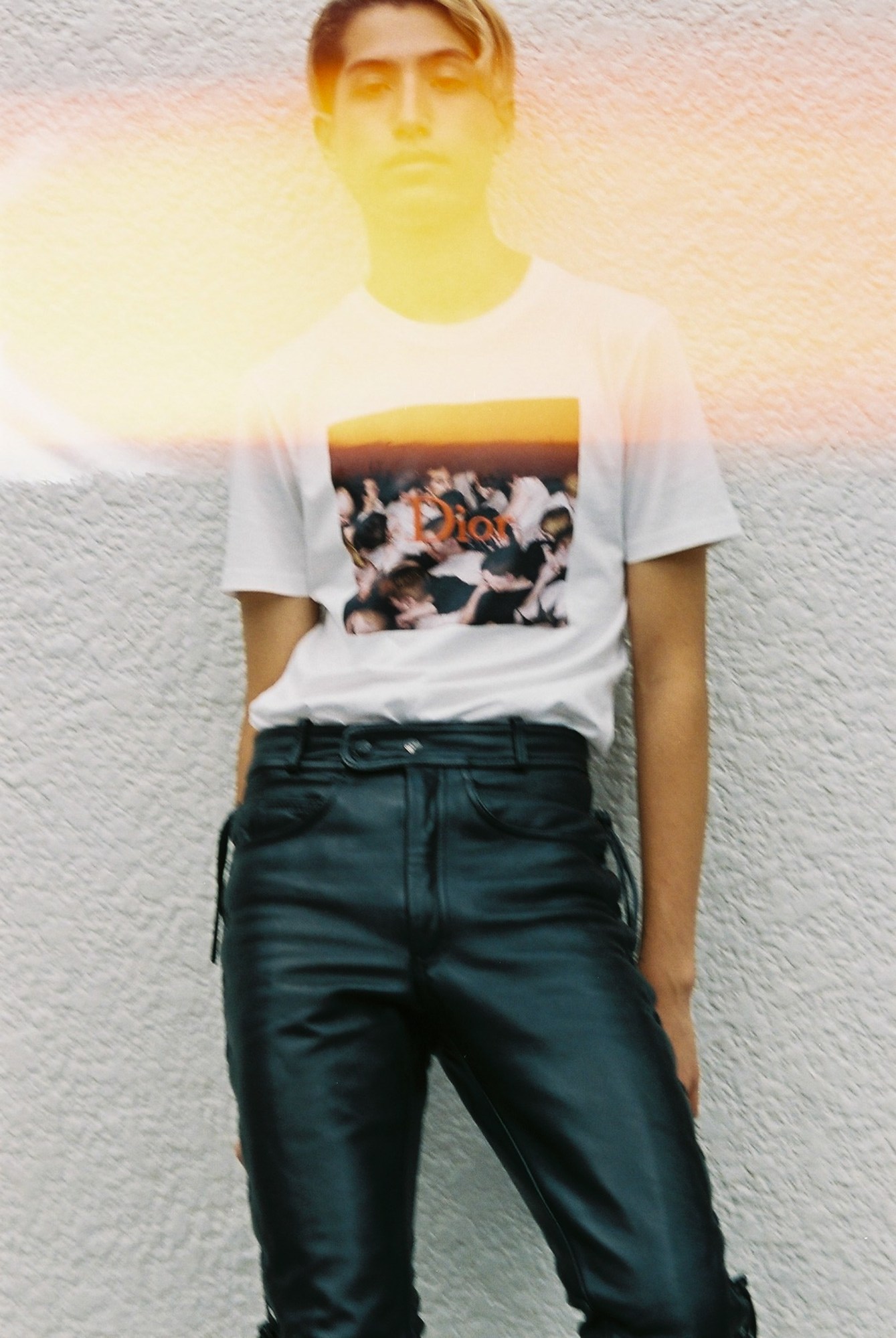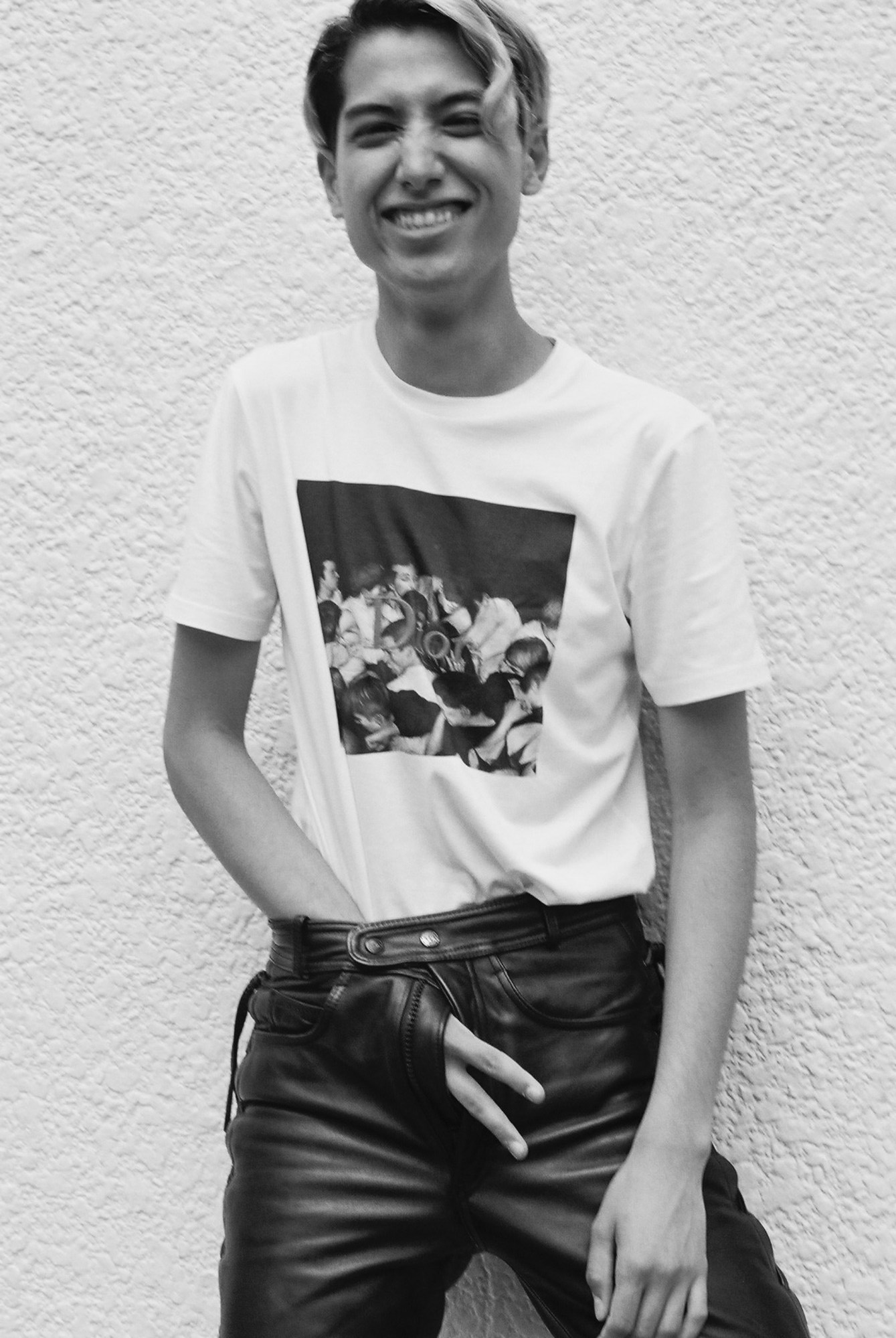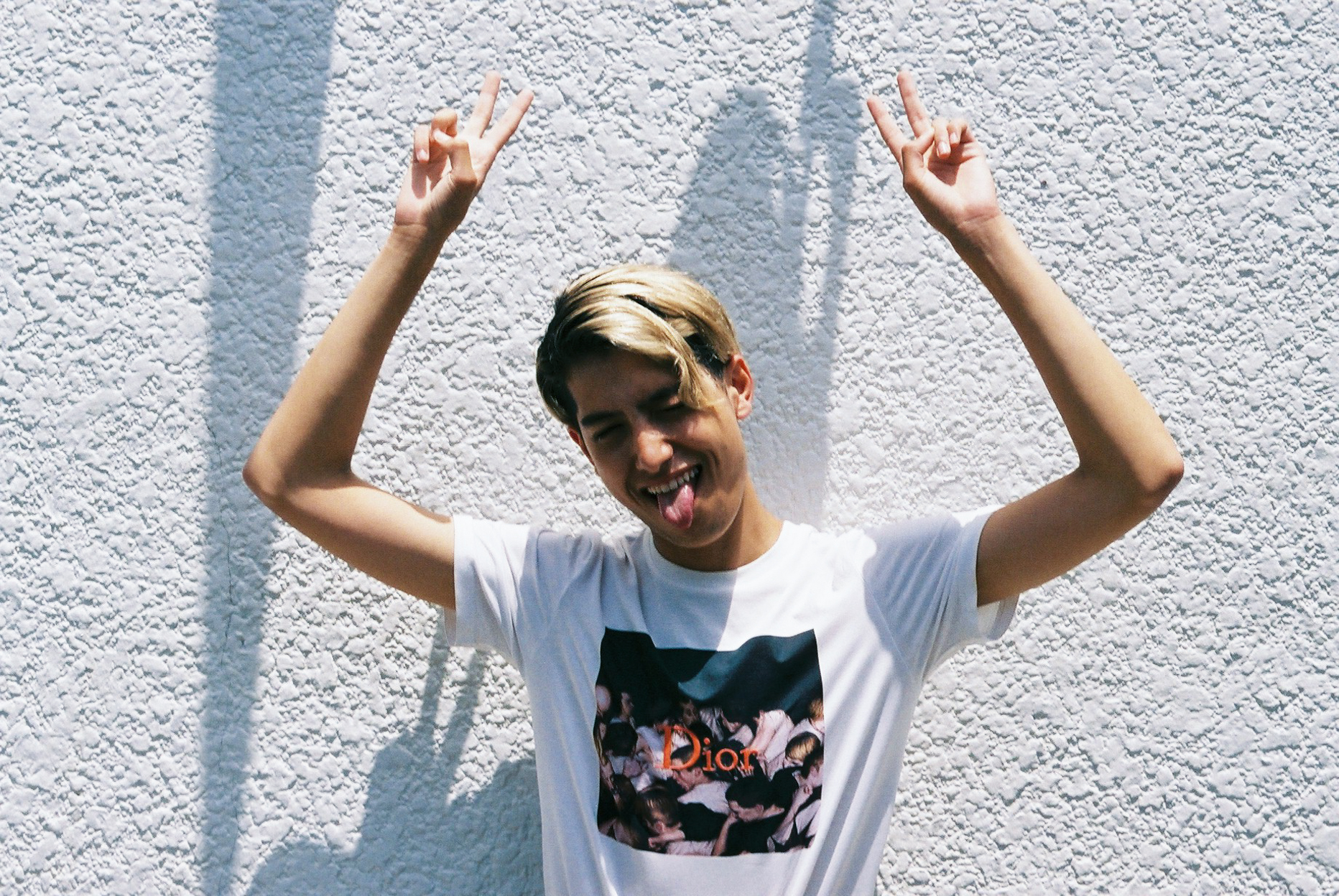This article originally appeared on i-D Japan.
“Hello everyone on the planet! It’s K-E-M-I-O. KEMIO!” 22-year old internet sensation Kemio has shot to attention in his native Japan over the past 5 years, since his first viral VINE video (RIP). He’s a natural entertainer, who’s become a superstar with his high energy videos and fire Instagram, and is now living every influencer’s dream.
Since his debut as an in-house model for HR magazine, and early days posting snippets of his daily life as a high school student on VINE, Kemio has moved to the USA to study, and somehow found time to appear at countless events (and meet Lady Gaga, his idol).
Smartphones and selfie sticks are his only weapons in his war on ennui. Kemio speaks in a hyper rapid-fire style, and his catchphrases are popular amongst Tokyo’s high school students, and young people in Shinjuku. i-D caught up with him while he was home for the holidays, to hear about what he’s learned since that fateful VINE.

When did you set your sights on becoming a superstar?
I loved being the center of attention even as a small kid. I would take the lead role at school events. I lived with my grandparents since I lost my parents at the age of 2, and grew up watching American dramas and cartoons. That influenced my dreams of becoming a superstar.
Many people got to know you through VINE. Did you post videos there with the intention of being famous?
I was not conscious of anything. I finally got a cell phone in high school, and at that time VINE was popular among young people overseas and Harajuku shop clerks. So one day I posted a video of my classmates doing amusing things, then the people started responding and it opened the first door.
You’re a part of the scene in Shibuya and Harajuku — why did you decide to study in the USA?
Since I was young, I’d always wanted to live abroad and learn English. When I was 20, I decided that it was finally time to go overseas.
What have you learnt from studying in the US?
Besides just learning a new language, I’ve been exposed to a lot of stimuli. When I was in Japan, I was only chatting with friends like [how they do in] American high-school dramas, but while studying in the US, I realized that there were many political and realistic conversations that people in my generation were having. It was a year of realizing that it’s important to not say “yes” so easily — that “no” was also important.
It’s part of my Japanese personality that I am rather obliging, and if a friend asks me to do something, I would always try to accommodate. I realized that that is more likely to make relationships fall apart. Now it’s easier for me to say “no” in my daily life or work.

You once posted a video on YouTube of you crying on the phone to your grandparents. How do you motivate yourself in times of frustration?
I always listen to music and watch Lady Gaga’s interviews to lift my mood. I feel like I’m brainwashing and controlling myself. It is a fight with myself.I usually recover quickly from my frustrations, and it seems that good things happen when I have a positive mind-set. Especially when studying in the US, if one incident happens, the next will happen so shortly that I barely have time to react. For example, thieves frequently broke into my apartment after I posted it on YouTube, and circumstances like that forced me to recover even faster.
I think the reason why viewers are so obsessed about your postings of daily occurrence is because of your emoji-like catchphrases and the so-called Kemio language. But, do you actually use those catchphrases in your daily life?
Yeah, loads of my friends are like me, with a similar way of talking when we are joking around together. Also, since I was little I loved musicals, so I think that it became a habit to rhythmically say words as though I was singing.
While you’ve got fans cheering for you on social media, there’s bound to be haters too. What do you feel about the negativity?
When I was a high school student, it honestly shocked me. I felt like I wanted everyone to like me, and was afraid of being hated, but I do not feel anything now. Now I care more about the people waiting for my new videos.

Whether it’s on VINE or YouTube, you tell the story of high-school boys and the life of Kemio as it is.
I am doing it as if I’m just sharing my daily life. In a way, it’s like being on a reality show or keeping a diary. When I go somewhere interesting, I bring my cell phone and selfie stick and go out there with the intention of making memories.
Whenever you talk now, do you feel like you are working regardless of whether you are on or offline? What kind of person is reflected in social networks?
I’m more conscious of the feeling that I’m sharing my life rather than working. In general, I think that people who are active in the entertainment world are equated with the “idol/talent” image, but I often get comments from fans who actually want to be my friend. It is a really happy thing, I am glad that there are so many people who would like to be my friends.
What sort of superstardom are you aiming for?
Well, I want to be Kemio! But I’m still seeking a specific dream about what I’d like to be. Someday I’d like represent Japan and appear on the Ellen DeGeneres Show. I do not know what I will be, but I know for sure that I want to be someone who couldn’t be replaced by others by doing things only I could do and staying true to myself right until the end. That way I can get closer to my goal, I guess.
Credits
Photography Ko-ta Shouji
Text Yoshiko Kurata
